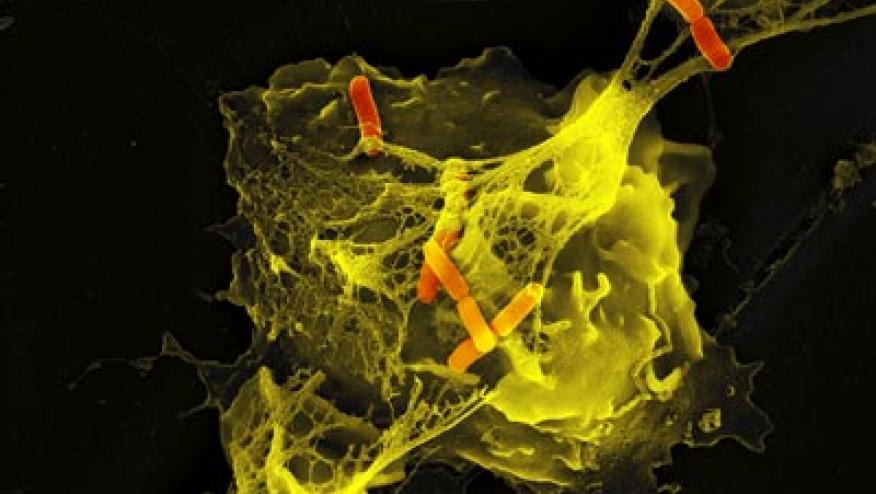A Role for Netosis in COVID-19 Infection? Save

Journal of Experimental Medicine has published a paper from a consortium of researchers at Cold Spring Harbor Laboratory, the Feinstein Institutes for Medical Research, and the Research Institute of the McGill University Health Centre (RI-MUHC) on the potential of neutrophil extracellular traps (NETs) as the cause of the more severe manifiestations of COVID-19 infections.
Extensive NET activity has been previously linked to Acute Respiratory Distress Syndrome (ARDS), pulmonary inflammation, extensive lung damage, and thrombotic events. Moreover, the cytokine storm seen with COVID-19 elaborates many mediators of neutrophil and chemoattractants activity. NETs can induce macrophages to secrete IL1β and that IL1β further compounding the signaling loop between macrophages and neutrophils, leading to progressive inflammatory damage.
Although it is unclear what leads to the cytokine storm, the authors propose neutrophils and NETs are involved in patients with severe COVID-19. In severe COVID-19, neutrophilia predicts poor outcomes and the neutrophil-to-lymphocyte te ratio is associated with more severe disease.
If these researchers at the eleven NETwork institutions find excess netosis in association with severe symptoms of COVID-19, then targeting netosis therapeutically could be a new therapeutic option for those severely affected.
NETs can be detected in tissues by immunohistochemistry and in blood by sandwich ELISA and these studies will collect samples from COVID patients to determine if the presence of NETs is associated with severe COVID-19.










If you are a health practitioner, you may Login/Register to comment.
Due to the nature of these comment forums, only health practitioners are allowed to comment at this time.